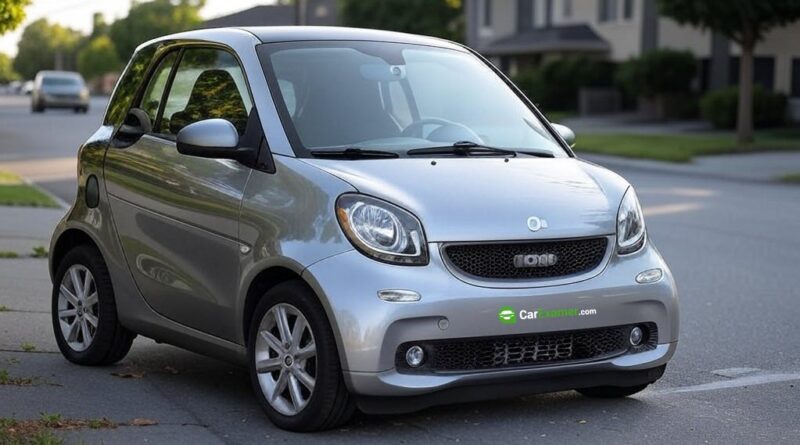Common Smart Car Problems: What To Know Before Buying
Smart cars, especially the popular Smart Fortwo and Smart Forfour models, are known for their ultra-compact size, city-friendly design, and great fuel economy. They’re ideal for urban drivers looking for easy parking and low running costs. However, Smart cars do come with some recurring issues that prospective buyers and current owners should be aware of. Here’s a breakdown of the most common Smart car problems and how to spot them.
1. Gearbox and Transmission Issues
Many Smart car owners, particularly those with older Fortwo models, report problems with the automated manual gearbox.
Common issues include:
- Jerky or delayed gear changes
- Trouble selecting reverse gear
- Transmission warning lights
Some of these problems can be fixed with a software update, while others may require repairs to the clutch actuator or gear selector.
2. Electrical and ECU Faults
Electrical system problems are fairly common in Smart cars. Faulty wiring or issues with the ECU (engine control unit) can cause various glitches.
Watch for:
- Unexplained dashboard warning lights
- Central locking or window malfunctions
- Battery drain or inconsistent starting
Routine diagnostics and battery health checks can prevent larger problems.
3. Worn Engine Mounts
Smart Fortwo models, in particular, are known for worn engine mounts over time.
Symptoms include:
- Excess engine vibration
- Clunking noises when starting or shifting
Replacing worn mounts can restore smoother performance.
4. Suspension and Steering Wear
Due to their short wheelbase and city driving patterns, Smart cars can experience faster suspension wear.
Typical signs:
- Knocking or rattling sounds on rough roads
- Uneven tyre wear
- Loose or vague steering feel
These issues are usually caused by worn bushings, shocks, or ball joints.
5. Oil Leaks and Engine Performance Issues
Some Smart petrol and diesel engines develop leaks or performance concerns, especially in high-mileage examples.
Common concerns:
- Oil leaks from valve covers or gaskets
- Coolant leaks leading to overheating
- High oil consumption
- Timing chain issues
These issues often come from poor maintenance or skipped service intervals.
6. Limited Practicality (Design Considerations)
While not a defect, the limited space in Smart cars is worth noting.
Challenges include:
- Minimal boot/luggage capacity
- Cramped rear seating (Forfour only)
- Less stable highway driving at high speeds
These trade-offs make Smart cars ideal for short city trips rather than long-distance journeys.
Final Thoughts: Should You Buy a Smart Car?
Yes—Smart cars are a smart choice for urban living, but they require careful consideration. To ensure a reliable experience:
- Look for a model with full service records
- Get a pre-purchase inspection
- Avoid examples with deferred maintenance or excessive mileage
Electric models like the Smart EQ Fortwo offer even fewer moving parts and reduced long-term maintenance, making them an increasingly popular choice for eco-conscious drivers.
Buying a used VW. Buying used vauxhall, BMW, Jaguar, Ford, Volvo, Range rover, Bentley, Aston Martin, Porsche, Ferrari, Lamborghini, Maserati, Hyundai, Tesla, Honda, Pagani

